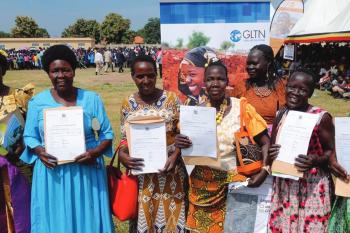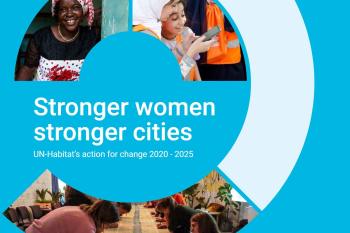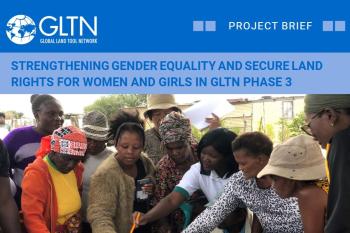
Read More
Gender Strategy for Land-at-Scale Uganda
Women’s Land Rights (WLRs) are fundamental human rights, foundational to gender equality and women’s dignity and instrumental in improving food security, effective climate action, poverty eradicati

A synthesis of studies from Asia and West Africa and emerging recommendations
The International Land Coalition (ILC) commissioned a series of studies to improve understanding of the barriers that prevent women from achieving tenure security, with a particular focus on inheritance laws in Muslim societies and the practices that influence women’s land rights. The studies analysed inheritance laws and their impacts on rural women in Bangladesh, India, Pakistan, Indonesia, Senegal, Togo, and Mali. The studies focused on Muslim societies, but also looked at how these differed from, mirrored, or influenced the inheritance practices of non-Muslim groups in the same countries. The studies showed that women continue to be systematically denied their rights to inheritance, especially in rural areas. Inheritance practices are deeply embedded in local culture and tradition and, even though civil and religious laws exist that protect women’s inheritance, customary laws are found to prevail, which largely exclude women from property ownership and inheritance. Disinheritance undermines women’s economic security and independence and reinforces gender inequality.

Women’s Land Rights (WLRs) are fundamental human rights, foundational to gender equality and women’s dignity and instrumental in improving food security, effective climate action, poverty eradicati

This publication presents a summary of UN-Habitat’s gender equality impact over the past five years, in line with the Beijing reporting cycle.

GLTN’s institutional commitment to gender equality and secure land rights for women and girls has been at the core of its work since inception in 2006.